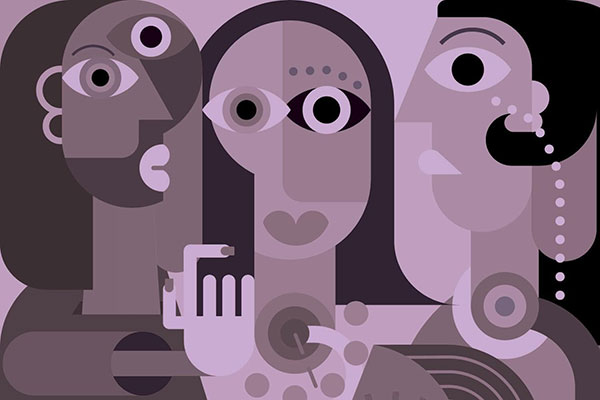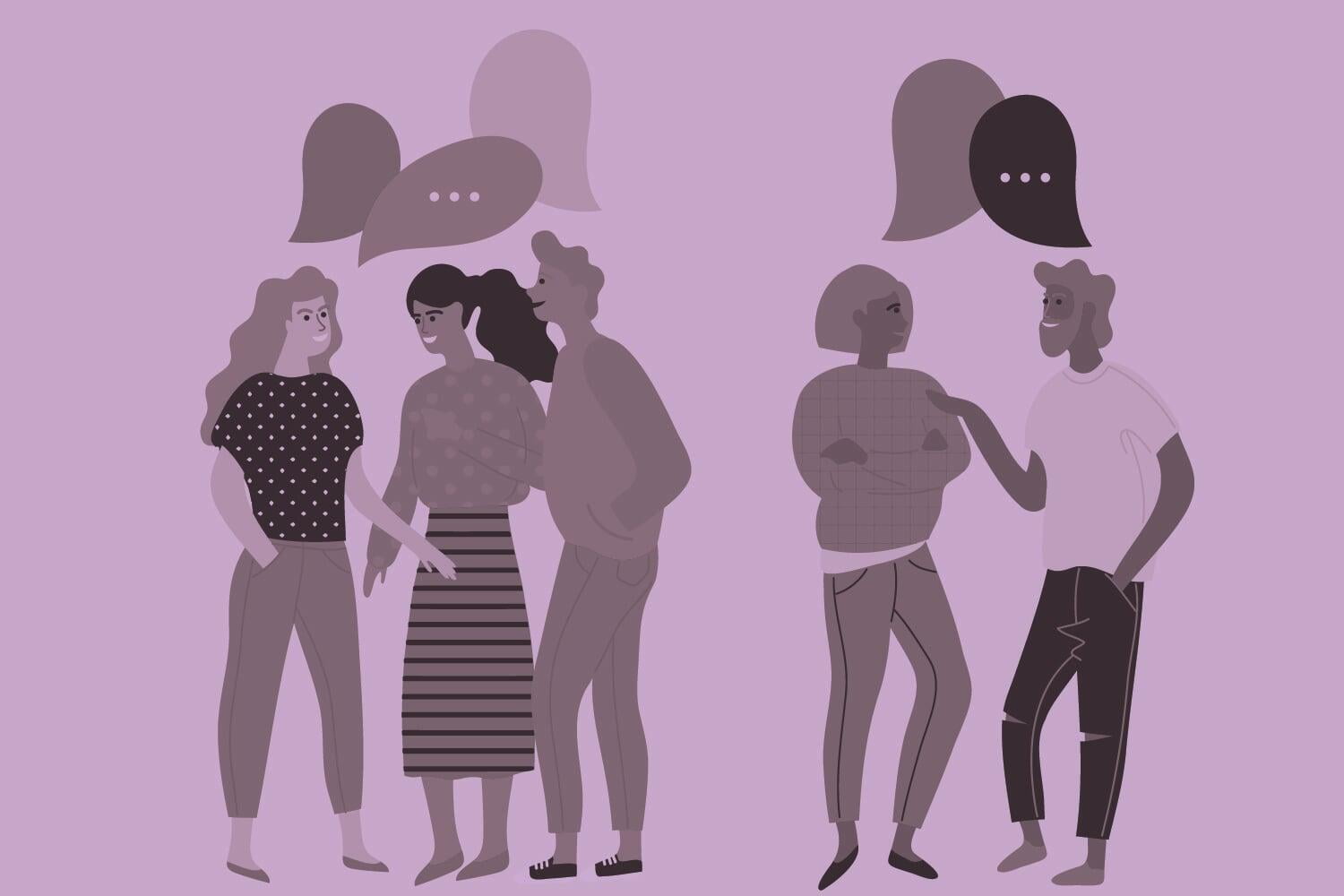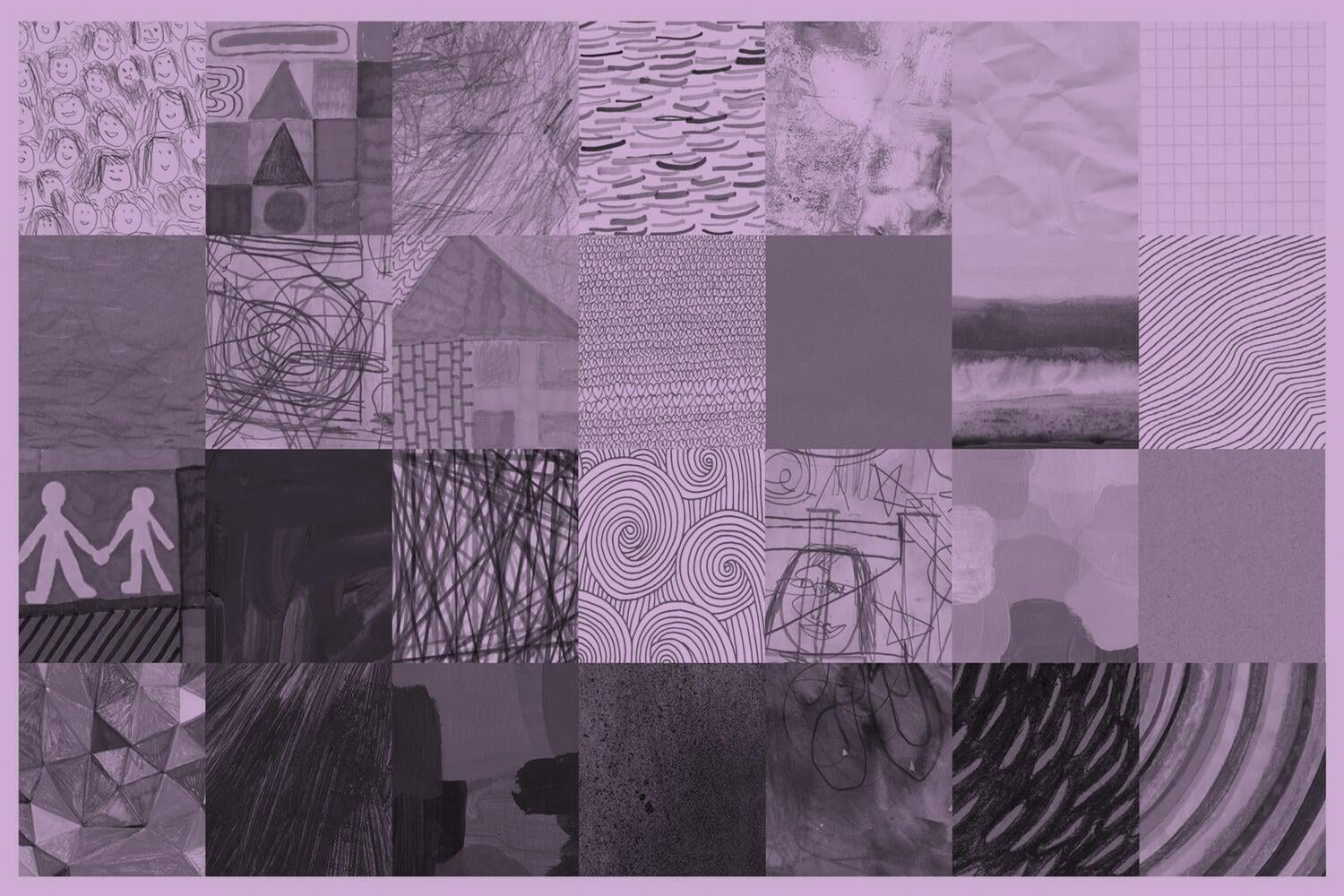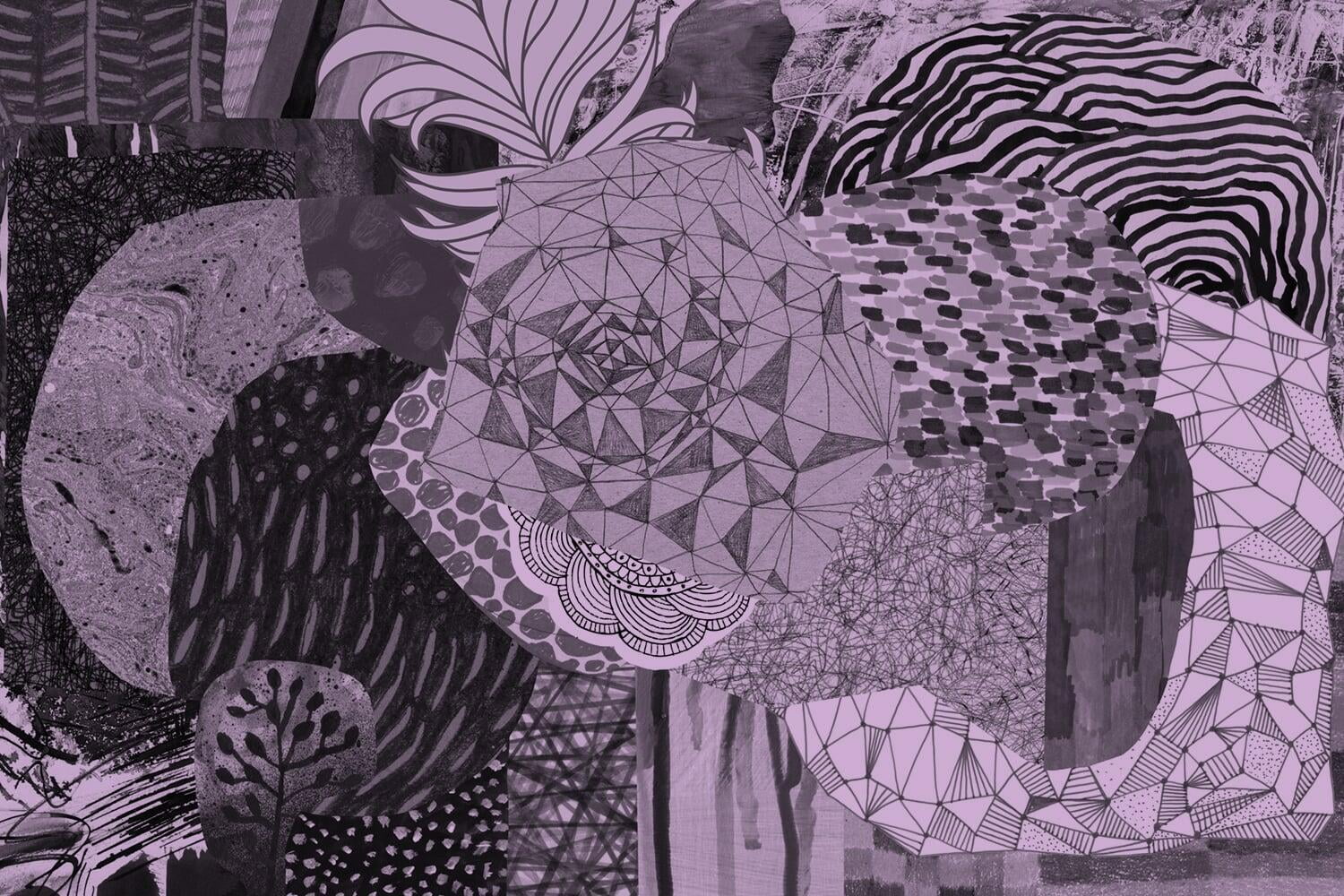The Pathway to Excellence | Live
Family and Friends
What is fellowship with our family and friends? The fellowship of family and friends is the enduring way that human society creates shared connection and purpose. The network of people with whom we are in close relationship helps us to belong, to fulfil our potential, and to do what is good and right. Answering the question “whose am I?” is the most immediate and powerful reason for us to become the best version of ourselves on The Pathway to Excellence.
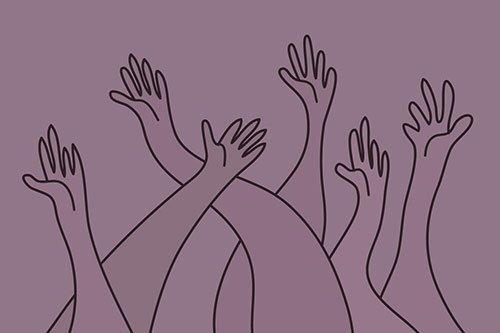
KINDNESS AND THE LAW OF RECIPROCITY
The golden rule of all belief systems works according to reciprocity – that we do to, for and with others what we would expect would be done to, for, and with us. Relationships with family and friends, therefore, cannot be one-sided for any reasonable period of time. We may give different things to each other and in varying quantities. Yet each side must bring value to the other. This means that what is given and taken is tangibly and practically valued by both. We must see the benefit and when we cannot, then the relationship is unlikely to last. In this way, reciprocity brings us the quality of hope and its realisation through generosity of spirit and tangible improvement of how we learn, live, lead, and work. The reciprocity of a good relationship helps us to succeed by increasing both our progress and our wellness.
Out of reciprocity also comes trust. The relationships around us in our lives with family and friends need to be full of small and great practical acts of giving and taking, as well as deeply imbued with a mutual understanding that such things will happen in due course because we all want the best for each other. We know we are safe when we know that someone has our interests at heart and that they will do what they can to ensure that no harm comes to us. We know we can grow when someone invests in us and gives us the benefit of what they have to see us develop our character and competencies. We know we might become who we want and ought to become when we see the value that others place in us and the support that meets our needs in different ways to help us rise to the challenge of The Pathway to Excellence.
In the end, though, while mutual benefit and trust are necessary, what may well prove to be of more lasting value for all in any of our close relationships is kindness. It is our capacity to see the good in others and imagine that what motivates them in relation to us is inspired by love that allows us to see and forgive the inevitable ways in which they let us down. Unkindness brings no joy with it, only the certainty that if we anticipate will a relationship to fail through meanness of intent or allow it to wither through selfish neglect, then it will. We need kindness to help us to sustain and nurture both kinship and friendship through good times and bad, or to put an end to that which is proving to be damaging without resort to fault or blame. If a relationship cannot work, then it cannot work. But it can’t be for want of kindness.
“I define connection as the energy that exists between people when they feel seen, heard, and valued; when they can give and receive without judgment; and when they derive sustenance and strength from the relationship.”
Brené Brown
THE CHALLENGE OF JUDGMENT
It’s important for all of us to realise that we have choice in the way we manage the way that we nurture and sustain the reciprocity, trust and kindness in the important relationships of our lives with family and friends. As people come into our lives, we make quick judgments about whether we like them or not. This sense of affinity is, in many ways, inherent in our behaviour and is most likely biological in nature. We seem to be programmed to want to connect with people who we think are most like ourselves. We like to be around someone who feels like “one of us”. We tend to mistrust those that appear not to be so. While there may be a natural tendency to making immediate decisions in such ways, we need to understand that we can and should go beyond our first impressions.
This calls upon the quality of openness. It also requires us to accept that in taking the risk to see through the surface, we may not end up with everything we want. No human being is perfect, and every relationship comes with the potential to cause hurt to either party. Experience tells us that the longer a relationship goes on, the more likely it is that such harm will occur in some way. It may be prudent for us to be cautious, or it may prove to be worthwhile to be more adventurous in the first instance as we anticipate, instead the benefits that may arise. To a certain extent, how we respond to the presence of strangers in our lives comes from the make-up of our personalities and how this interacts with our circumstances. Nonetheless, just because we are more or less open does not mean that our first judgment will be right. We need to temper the snap judgment of our first thoughts with a more critical and reasoned approach to testing these out over time. We need to couple the sense of affinity with the people and place to a deeper sense of alignment with the purpose and practice of our lives. The former will come quicker than the latter. Both require judgment to be exercised on the basis of the evidence of lived experience to be validated. Both may not necessarily be appreciated by our family and friends too! We need to give it time for the patterns of the exchange of kindnesses and the gifts of reciprocal value to come to the fore. We also need time for the culture of habits, structures, and rituals to be created that will allow us to share a life together with meaning, joy, and trust.
GROWING IN FELLOWSHIP WITH FAMILY AND FRIENDS
People will come into the circle of our family and friends throughout our lives. To all, we owe the courtesy of respect for their humanity and their connection to us. To some, we will accord the close companionship of fellowship. To grow in fellowship with family and friends together, we need to think through some form of criteria on which we might base our longer-term judgments about the quality and durability of relationships. The temptation for all of us is to ask what benefits these relationships are bringing to us individually. Are they enjoyable? Do they meet my needs? Am I getting out of it the same or more than I am putting into it? The fulfilment of self-interest is legitimate in its own context. After all, if our needs are not being met, then the relationship lacks the reciprocity that will sustain it. On the other hand, self-centredness is an incomplete, hollow and destructive way of life. The person who always puts their own interests first and who does not trust others to look after them is also the person who is least likely in a relationship to be providing the care and kindness required to make the relationship last. The self-centred person can be the most powerful person, at least in the short term, because they can exhibit the habit more frequently of saying no to the act of giving and saying yes to the act of taking. If they care less for the other person, then they can deny what is needed until it is traded for something in return. This holds generosity hostage when what is better for all is to go on the journey from “me” to “you” to “us”.
Thus, while meeting our needs and desires is important, our default should be to look to people and to ask ourselves “how can I best serve others?”. For some, this is counter-intuitive while for others this comes more naturally. Yet, as with the exercise of judgment, the right approach to forming a commitment to service can be learned over time. Jumping in without thought or holding back with suspicion are probably not the best first courses of action. Instead, as we seek an answer to the greater question “whose am I?” in trying to form a vocation, a calling for our life, we need to try to connect the people whom we encounter to this higher purpose we are forming for our own lives. Are these “our people” and in “our place”? Are they part of “our purpose” and therefore are they part of the exercise of “our practice”? The answers to these questions can, will, and should change over time. People play different roles in our lives according to our age and stage. It is common for younger children to adore their parents in the same way as adolescents hold them in contempt, only to come to respect them later in life as the relationship moves into a phase of advice and guidance when it is sought. In particular, we will discover over the course of a life that there will be strong collegial bonds that will disappear almost instantly when we change jobs, move house, and move in different circles.
What will have been shared together through a mutual work, recreational or social space will also have been defined in the end by this very proximity. Life is full and busy and without proximity, relationship can fall away very fast without negating the good things that the relationship might have brought to all at the time. In the same way, there are few friendships that last for ever. Even when they do, it is often the comfort of ritual and shared memory that will prompt deep affection to continue the connection even when the needs and circumstances that brought people together will have long faded. When we reunite, we can bond quickly and energetically over what we once had, tell stories that make us laugh and cry, then go on our way again back to our new lives. In this way, our family and friends become important parts of our yesterday, today and tomorrow.
We will, most likely, have just a few close connections which we can maintain throughout the narrative of our lives. Often, but certainly not always, these will arise from within our family, regardless of what we might think of them right now! Some of them will not be related to us by birth but we will gain intimacy with them over time. What will stand the test of time with these close relationships is the quality of the choices we make to honour the hope that people bring to us and our capacity to preserve and their dignity as human beings. More often than not, it will be what we give to our family and friends in fellowship again and again that will help us in return to grow in kind and in kindness on The Pathway to Excellence.
LOCATING FAMILY & FRIENDS IN OUR LIVES
In the end, we believe that how you connect with and care for your family and friends in fellowship can help you by:
- Building healthy family connections that last – how you come to know, appreciate and show lifelong gratitude for the positive and practical gifts that relationships with family can and do bring to them and to you
- Adopting an approach to establishing and maintaining constructive friendship groups – how you go about identifying and caring for friends and acquaintances of good character who bring to your relationships the values, beliefs, and structure that create an environment of trust and reciprocity in which all might grow to fulfil their potential and to do what is good and right in their lives
- Working out a manageable range of social activities and clubs that will enhance your sense of connectedness and increase your important and useful relationships – how you select which groups of people you will join that will align with and support your lifestyle and your sense of belonging, the fulfilment of your potential, and your propensity to do that which is good and right
- Locating your personal recreational interests within a practical number of sports, the arts and other hobbies – how you develop your recreational interests with other people in your life within the context of the time that is available to you and what you enjoy
